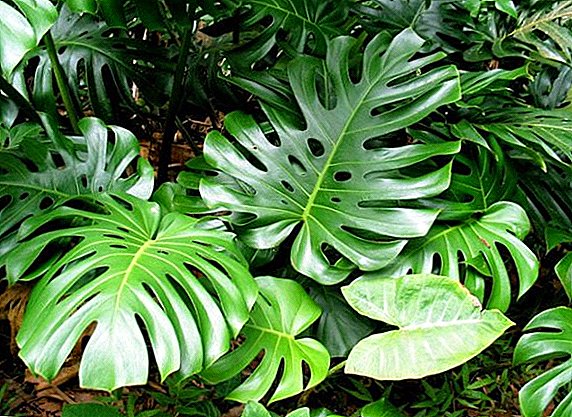 Modern science proves the high efficiency of many medicinal plants with which generations of our ancestors were treated.
Modern science proves the high efficiency of many medicinal plants with which generations of our ancestors were treated.
To alleviate the symptoms of a cold, diseases of internal organs, and the treatment of wounds, a white clover is used - an herbaceous plant of the legume family. Unpretentious, resistant to drought. It grows in the steppes and cultivated in the fields as a crop.
Used as a honey plant, forage plant, green fertilizer. Thanks to the ability to synthesize coumarin and its derivatives, clover has both beneficial properties and contraindications, honey from its nectar and pollen is highly valued and is considered one of the best.
Due to the abundant flowering that lasts 2-2.5 months, the productivity of the apiary is increased by 5-7%.
Chemical composition
Soils where white sweet clover grows are enriched with nitrogen and other minerals, their quality is greatly improved.
Green mass contains biologically active substances:
- tannins
- choline,
- carotene,
- vitamin C,
- molotic and coumaric acids.
The high content of coumarin and dicumarol allows the plant to be used as a flavoring and raw material for the drug and tobacco industries.
White clover is a honey plant of high productivity; honey collected from donik fields is considered to be curative. Up to 2 billion flowers per hectare of cultivated crops, from which up to 600 kg of honey are harvested per season. The best is the plant variety Kherson souvenir.
Learn more about these types of honey, such as acacia, hawthorn, acacia, cypress, may, espartseit, rapeseed, fatselium, chestnut, buckwheat.

Did you know? The book of the ancient physician Dioscorides, (1 in AD) "Medicinal substances" described more than 600 species of medicinal plants, summarized the experience of previous civilizations, was translated into Latin and was used as a teaching and practical manual until the 16th century.
What is beneficial to human health?
Dicumarol can reduce blood clotting. Its high level in the grass of clover determines its healing properties and contraindications.
Medicinal properties:
- expectorant;
- antiseptic;
- bactericidal;
- anthelmintic;
- sedative;
- prevents blood clots;
- improves liver regeneration.
These properties are used in pharmacology and phytotherapy for the treatment of hypertension, bronchitis, arthritis, insomnia, increased excitability, lactostasis, gynecological diseases, mastopathy.
Melilot is used to correct the symptoms of menopause, disorders of the liver and thyroid gland. When used externally, it is used as a wound healing agent, for pain in muscles and joints. 
Preparation and storage of medical raw materials
The collection of raw materials is carried out during the flowering period, in dry weather, after evaporation of morning dew.. Harvest the upper parts of the plant, inflorescences and grass. Dry in the shade, with good ventilation, spreading a thin even layer.
Properly dried grass is light and fragile. Stored up to 2 years. Melilot does not grow on acidic, too wet soils, when sown in such soils make lime to correct the level of Ph.
Did you know? The first records about the use of medicinal plants belong to the civilization of Sumer, which existed 8000 years ago in the territory of modern Iraq. Even then, ancient healers knew that it was necessary to dry medicinal herbs in the shade, and infusions should be done on water, wine and beer.

Recipes of traditional medicine
White clover is used for the production of medicines Dikumarin, medical patches. In folk medicine, it is used to prepare decoctions, poultices, infusions.
Herbal infusion is used to prevent blood clots, 100-120 ml, 3-4 times a day 20 minutes before meals. A tablespoon of grass is poured with 250-300 ml of boiling water, infused in a thermos for at least 1 hour, filtered.
Poultice - compresses from crushed grass steamed in boiling water, wrapped in cotton fabric, are made on joints affected by arthritis, with injuries to accelerate healing.
Alcohol tincture for external use in arthritis, myositis, sprains:
- Alcohol solution 40% - 5 parts.
- Chopped grass - 1 part.
- Insist 8-10 days, filter.
Marigold, willow, momordiku, goldenrod, juniper, marsh wild rosemary, safflower - also used for arthritis.
 Used for compresses and rubbing.
Used for compresses and rubbing.Important! Ointment on the basis of white clover is effective against Staphylococcus aureus.
Harm and side effects
When using medicinal plants it is necessary to be careful, herbal remedies, tinctures, decoctions can have a strong effect. In case of indisposition and chronic diseases, a medical examination is necessary.
When using clover there are contraindications:
- A stomach ulcer.
- Periodontal disease.
- Urolithiasis disease.
- Bleeding
- Low blood clotting.
- Planned surgery.
Important! The plant is considered poisonous and is contraindicated in pregnancy.
 When feeding cattle when feeding with clover, bleeding occurs and poor wound healing occurs; therefore, for harvesting feed, the plant is mown 25-30 days after flowering and is ensiled.
When feeding cattle when feeding with clover, bleeding occurs and poor wound healing occurs; therefore, for harvesting feed, the plant is mown 25-30 days after flowering and is ensiled.The plant is used in folk and official medicine due to the unique chemical composition. When using it for medicinal purposes, it is necessary to consult a doctor.
Nature created, and people learned to use the valuable properties of white clover for the successful treatment and prevention of many diseases.












